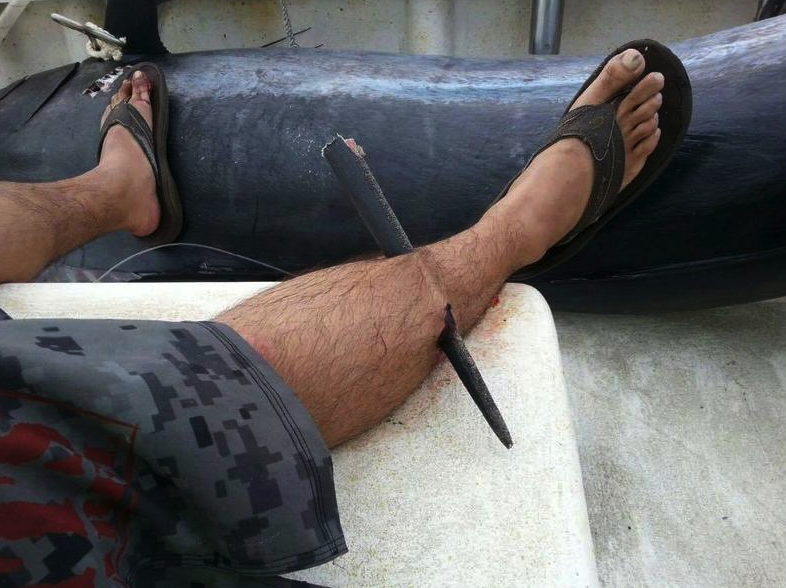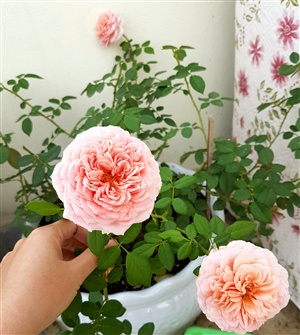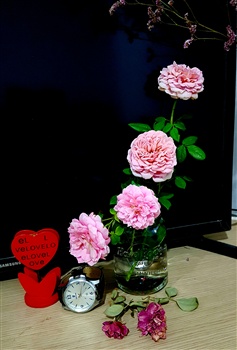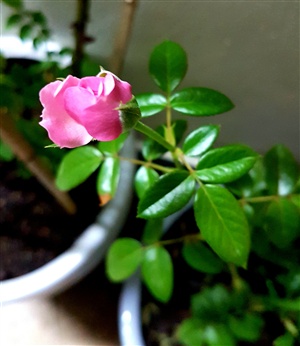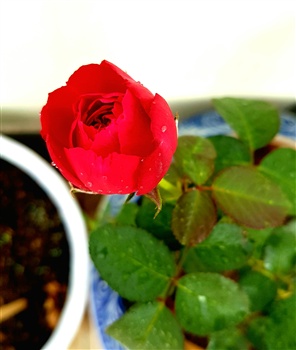Here is a list of Health Blogs ordered by Newest, posted by members. A Blog is a journal you may enter about your life, thoughts, interesting experiences, or lessons you've learned. Post an opinion, impart words of wisdom, or talk about something interesting in your day. Update your blog on a regular basis, or just whenever you have something to say. Creating a blog is a good way to share something of yourself with others. Reading blogs is a good way to learn more about others. Click here to post a blog.

A huge can of worms. Updated.
Firstly, should members of the public be expected to pay for someone else's irresponsible s*xual practises, it could be argued that £20m isn't that much & the NHS spends way more on people who overeat or smoke
Secondly, and this is the biggy, if you've decided the NHS should provide this drug free the next step will be - Why aren't we providing it for 3rd world countries where the risks are even higher, are there lives not worth as much as ours
The £20m would look like small change compared to the cost of providing this drug free to say just Africa, how much are we all prepared to pay for someone else's sex life
Update, news today, seems possible the above is possibly no longer relevant
Details -

Scarring process?
For questions relating to my business, last Monday my leg was found in similar circumstances and, as is not the first nor the last, this does not worry me in a peculiar way; but being a vegetarian over the years affected, excessively, the process of healing my body, due to deficiency of my diet free of all kinds of meat and fish.
I appeal to your good will and your knowledge, any of you know of some effective natural remedies to help the healing process of my leg.
Please, it's not a joke; I really want your advice.
Thank you in advance for your help.

Should we the ordinary
Im watching this on the news and I feel sickened over the last few days the way the media are vilifying the doctors who are fighting unjust expectations on an already overworked and under payed work force.
Hearing things like
"Theresa May told doctors to stop “playing politics”"
Sounds like an upper class twat telling the working class to know their place.
Sure its Low of the medical profession to hold people to emotional ransom to justify the ends of its argument. But its Just as bad for people to think they should not. That they should work without voice,
no matter what the burden.
Could this contract be the proverbial straw that breaks the back of the nhs beast of burden.
and if so will we see the same trend go global..
All I know is that the business of sickness is a multi billion industry,
and where business is involved people are secondary be they doctors or patients
 online today!
online today!
The Privatization of Water
Nestlé Denies that Water is a Fundamental Human Right
The current Chairman and former CEO of Nestlé, the largest producer of food products in the world, believes that the answer to global water issues is privatization. This statement is on record from the wonderful company that has peddled junk food in the Amazon, has invested money to thwart the labeling of GMO-filled products, has a disturbing health and ethics record for its infant formula, and has deployed a cyber army to monitor Internet criticism and shape discussions in social media.
This is apparently the company we should trust to manage our water, despite the record of large bottling companies like Nestlé having a track record of creating shortages:
Large multinational beverage companies are usually given water-well privileges (and even tax breaks) over citizens because they create jobs, which is apparently more important to the local governments than water rights to other taxpaying citizens. These companies such as Coca Cola and Nestlé (which bottles suburban Michigan well-water and calls it Poland Spring) suck up millions of gallons of water, leaving the public to suffer with any shortages. (source)
But Chairman, Peter Brabeck-Letmathe, believes that “access to water is not a public right.” Nor is it a human right. So if privatization is the answer, is this the company in which the public should place its trust?
Here is just one example, among many, of his company’s concern for the public thus far:
In the small Pakistani community of Bhati Dilwan, a former village councilor says children are being sickened by filthy water. Who’s to blame? He says it’s bottled water-maker Nestlé, which dug a deep well that is depriving locals of potable water. “The water is not only very dirty, but the water level sank from 100 to 300 to 400 feet,” Dilwan says. (source)
Why? Because if the community had fresh water piped in, it would deprive Nestlé of its lucrative market in water bottled under the Pure Life brand.
In the subtitled video below, from several years back, Brabeck discusses his views on water, as well as some interesting comments concerning his view of Nature — that it is “pitiless” — and, of course, the obligatory statement that organic food is bad and GM is great. In fact, according to Brabeck, you are essentially an extremist to hold views opposite to his own. His statements are important to review as we continue to see the world around us become reshaped into a more mechanized environment in order to stave off that pitiless Nature to which he refers.
The conclusion to this segment is perhaps the most revealing about Brabeck’s worldview, as he highlights a clip of one of his factory operations. Evidently, the savior-like role of the Nestlé Group in ensuring the health of the global population should be graciously welcomed. Are you convinced?
Open Discussion Welcome!

Faith in the Machine
For example: I spent the afternoon being “evaluated” by a machine, the end synopsis being that I have to give up smoking.
Now I dont want to give up smoking, I feel fine, am never short of breath, have plenty of energy and sleep well, so, I ask myself, firstly, buy what standard does this machine measure me by (and who set that standard). Secondly, what if the machines calibration is wrong, perhaps even the machines software is incorrect.
Based on a graph drawn by a machine, how do I really know that giving up one of life’s pleasures is going to be of benefit to me?
I can tell you, it sure doesn’t make me feel any better!

TED Talks:The Power of Vulnerability 7
And we perfect, most dangerously, our children. Let me tell you what we think about children. They're hardwired for struggle when they get here. And when you hold those perfect little babies inyour hand, our job is not so say, "Look at her, she's perfect. My job is just to keep her perfect - make sure she makes the tennis team by fifth grade and Yale by seventh grade." That's not ourjob. Our job is to look and say, "You know what? You're imperfect, and you're wired for struggle, but you are worthy of love and belonging." That's our job. Show me a generation of kids raisedlike that, and we'll end the problems I think that we see today. We pretend that what we dodoesn't have an effect on people. We do that in our personal lives. We do that corporate - whether it's a bailout, an oil spill, a recall - we pretend like what we're doing doesn't have a hugeimpact on other people. I would say to companies, this is not our first rodeo people. We just needyou to be authentic and real and say, "We're sorry. We'll fix it."
But there's another way, and I leave you with this. This is what I have found: to let ourselves beseen, deeply seen, vulnerably seen; to love with our whole hearts, even though there's noguarantee - and that's really hard, and I can tell you as a parent, that's excruciatingly difficult - topractice gratitude and joy in those moments of terror, when we're wondering, "Can I love you thismuch? Can I believe in this this passionately? Can I be this fierce about this?" just to be able tostop and, instead of catastrophizing what might happen, to say, "I'm just so grateful, because tofeel this vulnerable means I'm alive." And the last, which I think is probably the most important, isto believe that we're enough. Because when we work from a place I believe that says, "I'menough," then we stop screaming and start listening, we're kinder and gentler to the peoplearound us, and we're kinder and gentler to ourselves.
That's all I have. Thank you. (Applause)
From Brene Brown

TED Talks:The Power of Vulnerability 6
And so then I went back into the research and spent the nextcouple of years really trying to understand what they, the whole-hearted, what choices they weremaking, and what are we doing with vulnerability. Why do we struggle with it so much? Am I alonein struggling with vulnerability? No. So this is what I learned. We numb vulnerability - when we'rewaiting for the call. It was funny, I sent something out on Twitter and on Facebook that says, "How would you define vulnerability? What makes you feel vulnerable?" And within an hour and ahalf, I had a 150 responses. Because I wanted to know what's out there. Having to ask myhusband for help, because I'm sick, and we're newly married; initiating sex with my husband; initiating sex with my wife; being turned down; asking someone out; waiting for the doctor to callback; getting laid-off; laying-off people - this is the world we live in. We live in a vulnerable world. And one of the ways we deal with it is we numb vulnerability.
And I think there's evidence - and it's not the only reason this evidence exists, but I think it's ahuge cause - we are the most in-debt, obese, addicted and medicated adult cohort in U.S. history. The problem is - and I learned this from the research - that you cannot selectively numb emotion. You can't say, here's the bad stuff. Here's vulnerability, here's grief, here's shame, here's fear, here's disappointment, I don't want to feel these. I'm going to have a couple of beers and abanana nut muffin. (Laughter) I don't want to feel these. And I know that's knowing laughter. Ihack into your lives for a living. God. (Laughter) You can't numb those hard feelings withoutnumbing the affects, our emotions. You cannot selectively numb. So when we numb those, wenumb joy, we numb gratitude, we numb happiness. And then we are miserable, and we are lookingfor purpose and meaning, and then we feel vulnerable, so then we have a couple of beers and abanana nut muffin. And it becomes this dangerous cycle.
One of the things that I think we need to think about is why and how we numb. And it doesn't justhave to be addiction. The other thing we do is we make everything that's uncertain certain. Religion has gone from a belief in faith and mystery to certainty. I'm right, you're wrong. Shut up. That's it. Just certain. The more afraid we are, the more vulnerable we are, the more afraid we are. This is what politics looks like today. There's no discourse anymore.
There's no conversation. There's just blame. You know how blame is described in the research? Away to discharge pain and discomfort.

TED Talks:The Power of Vulnerability 5
I personally thought it was betrayal. I could not believe I had pledged allegiance to research - thedefinition of research is to control and predict, to study phenomena, for the explicit reason tocontrol and predict. And now my mission to control and predict had turned up the answer that theway to live is with vulnerability and to stop controlling and predicting. This led to a little breakdown - (Laughter) - which actually looked more like this. (Laughter) And it did. I called it a breakdown, my therapist calls it a spiritual awakening. A spiritual awakening sounds better than breakdown, butI assure you it was a breakdown. And I had to put my data away and go find a therapist. Let metell you something: you know who you are when you call your friends and say, "I think I need tosee somebody. Do you have any recommendations?" Because about five of my friends were like, "Wooo. I wouldn't want to be your therapist." (Laughter) I was like, "What does that mean?" Andthey're like, "I'm just saying, you know. Don't bring your measuring stick." I was like,
"Okay."
So I found a therapist. My first meeting with her, Diana - I brought in my list of the way the whole-hearted live, and I sat down. And she said, "How are you?" And I said, "I'm great. I'm okay." Shesaid, "What's going on?" And this is a therapist who sees therapists, because we have to go tothose, because their B.S. meters are good. (Laughter) And so I said, "Here's the thing, I'mstruggling." And she said, "What's the struggle?" And I said, "Well,
I have a vulnerability issue. And I know that vulnerability is the core of shame and fear and ourstruggle for worthiness, but it appears that it's also the birthplace of joy, of creativity, of belonging, of love. And I think I have a problem, and I need some help." And I said, "But here's the thing, nofamily stuff, no childhood shit." (Laughter) "I just need some strategies." (Laughter) (Applause) Thank you. So she goes like this. (Laughter) And then I said, "It's bad, right?" And she said, "It'sneither good, nor bad." (Laughter) "It just is what it is." And I said, "Oh my God, this is going tosuck." (Laughter)

TED Talks:The Power of Vulnerability 4
I personally thought it was betrayal. I could not believe I had pledged allegiance to research - thedefinition of research is to control and predict, to study phenomena, for the explicit reason tocontrol and predict. And now my mission to control and predict had turned up the answer that theway to live is with vulnerability and to stop controlling and predicting. This led to a little breakdown - (Laughter) - which actually looked more like this. (Laughter) And it did. I called it a breakdown, my therapist calls it a spiritual awakening. A spiritual awakening sounds better than breakdown, butI assure you it was a breakdown. And I had to put my data away and go find a therapist. Let metell you something: you know who you are when you call your friends and say, "I think I need tosee somebody. Do you have any recommendations?" Because about five of my friends were like, "Wooo. I wouldn't want to be your therapist." (Laughter) I was like, "What does that mean?" Andthey're like, "I'm just saying, you know. Don't bring your measuring stick." I was like,
"Okay."
So I found a therapist. My first meeting with her, Diana - I brought in my list of the way the whole-hearted live, and I sat down. And she said, "How are you?" And I said, "I'm great. I'm okay." Shesaid, "What's going on?" And this is a therapist who sees therapists, because we have to go tothose, because their B.S. meters are good. (Laughter) And so I said, "Here's the thing, I'mstruggling." And she said, "What's the struggle?" And I said, "Well,
I have a vulnerability issue. And I know that vulnerability is the core of shame and fear and ourstruggle for worthiness, but it appears that it's also the birthplace of joy, of creativity, of belonging, of love. And I think I have a problem, and I need some help." And I said, "But here's the thing, nofamily stuff, no childhood shit." (Laughter) "I just need some strategies." (Laughter) (Applause) Thank you. So she goes like this. (Laughter) And then I said, "It's bad, right?" And she said, "It'sneither good, nor bad." (Laughter) "It just is what it is." And I said, "Oh my God, this is going tosuck." (Laughter)
A Blog is a journal you may enter about your life, your thoughts, interesting experiences, or lessons you have learned. It's your own page on Connecting Singles that you can update on a regular basis, or just whenever you have something to say. You can write about an opinion, impart words of wisdom, or talk about something interesting in your day. Creating a blog is a good way to share something of yourself with Connecting Singles members. Reading blogs is a good way to learn more about members you have met here. Please be sure to read the blog rules before posting.
Would YOU like to post a blog on Connecting Singles? Have you written blogs that you'd like to share with other members? Posting your blogs shows your skill and creativity and helps members get to know you better. Your blog will appear on the Connecting Singles Blogs page and also in a link on your profile page. Click here to post a blog »
